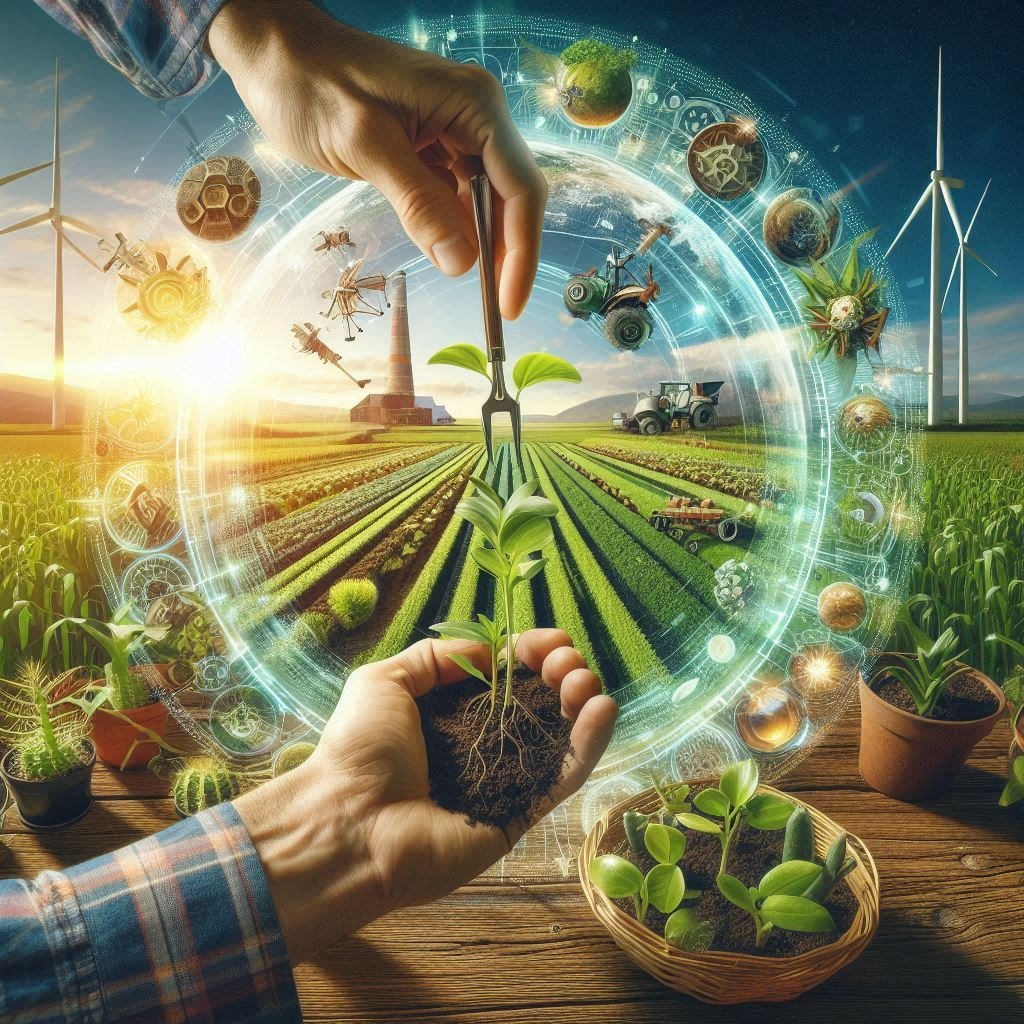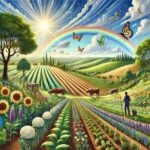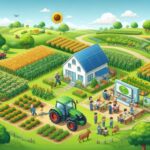Sustainable Agriculture: Cultivating a Future for People and the Planet
Sustainable agriculture is more than just a farming method—it’s a movement toward a healthier and more resilient world. As our population grows and the demand for food increases, it’s becoming essential to adopt practices that ensure the long-term productivity of the land without harming the environment. Sustainable agriculture is about finding the right balance, ensuring that our farming practices meet today’s needs while protecting resources for future generations.

What is Sustainable Agriculture?
At its core, sustainable agriculture involves farming practices that are environmentally friendly, socially responsible, and economically viable. The goal is to produce food in a way that supports human health and communities while preserving the ecosystems that make farming possible.
There are several key principles that guide sustainable agriculture:
- Preserving natural resources: This means minimizing the use of water, soil, and other natural resources, ensuring that they remain available for the future.
- Maintaining biodiversity: Farmers encourage diverse crops, livestock, and natural habitats to promote healthy ecosystems and reduce reliance on chemical inputs.
- Reducing environmental impact: Sustainable farms aim to lower their carbon footprint by using renewable energy, minimizing waste, and avoiding harmful chemicals.
- Supporting local communities: By focusing on small-scale, locally focused production, sustainable agriculture also strengthens local economies and provides jobs that are safer and more equitable.
Why is Sustainable Agriculture Important?
As our understanding of climate change grows, the need for sustainable practices becomes more urgent. Traditional farming methods often rely heavily on synthetic chemicals, large-scale monoculture crops, and industrial processes that can degrade soil, pollute water, and contribute to greenhouse gas emissions. Over time, these practices exhaust the natural systems we depend on, making it harder to grow food.
Sustainable agriculture, on the other hand, offers solutions to these challenges. By nurturing the land, water, and biodiversity, it builds resilience against environmental stresses like droughts, floods, and changing weather patterns. This not only helps farmers adapt to the impacts of climate change but also ensures that farming can continue to be productive over the long term.
Moreover, sustainable farming promotes healthier diets by growing a wider variety of foods—fruits, vegetables, grains, and livestock. Instead of focusing on high-yield, low-nutrition crops, farmers practicing sustainability aim to provide diverse, nutrient-rich food for their communities.
Practices That Support Sustainability
Sustainable agriculture is often associated with specific practices that promote environmental and social well-being. Some of the most common include:
- Crop Rotation: By planting different crops in the same field across different seasons, farmers can improve soil health, reduce pests, and minimize the need for chemical fertilizers.
- Cover Cropping: Growing plants like clover or rye during off-seasons helps protect the soil from erosion, improves water retention, and adds valuable nutrients back to the land.
- Agroforestry: Integrating trees and shrubs into farmland supports biodiversity, provides shade, and can even enhance crop yields by improving the local microclimate.
- Reduced Chemical Inputs: Many sustainable farmers use fewer synthetic pesticides and fertilizers, turning instead to organic methods like composting, integrated pest management, or natural fertilizers.
- Water Conservation: Practices such as drip irrigation, rainwater harvesting, and contour farming help reduce water use and prevent waste, ensuring that farming doesn’t deplete local water resources.
The Role of Technology
Modern sustainable agriculture is also increasingly benefiting from technology. Innovations in precision farming allow farmers to monitor crop health, soil quality, and water levels in real-time, optimizing resource use and reducing waste. Technologies like drones, sensors, and data analytics help make farming more efficient while minimizing its environmental impact.
Additionally, advances in plant breeding and genetics are producing crops that are more resilient to climate change, pests, and disease, reducing the need for chemical treatments and promoting greater food security.
Building a Sustainable Future Together
For sustainable agriculture to succeed, it requires support from not just farmers but also consumers, policymakers, and businesses. Consumers can make a difference by choosing locally produced and sustainably grown food. Governments can implement policies that support sustainable farming practices, such as offering incentives for organic farming or funding research into sustainable technologies.
Businesses, particularly those in the food and agriculture sectors, can also play a vital role by adopting more sustainable supply chains and supporting farmers in transitioning to greener methods. These efforts, when combined, create a powerful force for change.
Conclusion
Sustainable agriculture is a path to a more balanced relationship between humans and nature. It’s about working with the environment rather than against it, making sure that we protect the earth’s resources while continuing to feed the world. As awareness of the importance of sustainability grows, we are presented with an opportunity to rethink the way we grow food and support farmers who are leading the way toward a healthier, more sustainable future.
By choosing sustainability today, we are sowing the seeds for a brighter, more resilient tomorrow


